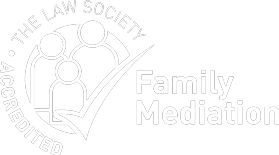
Child Support
The Child Support Agency (“CSA”) was the organisation responsible for collecting maintenance from absent parents for their children. The CSA enacted the Child Support Act 1991 which introduced responsibility for parents to maintain their children so that there could never be a situation where an absent parent does not contribute maintenance towards the upkeep of the children.
The Child Support Act requires a natural parent, that is a biological parent of the child responsible for maintaining them. A “qualifying child” is a child where one or more of his parents are “non-resident” parents. A non-resident parent will meet their responsibility to maintain the qualifying child by making periodical payments of maintenance. These are commonly known as “child support maintenance”. A “non-resident” parent is a parent not living in the same household as the child and the child lives with a person with care. A “person with care” is a person with whom a child has his home and who provides day-to-day care for the child and is not a foster parent or local authority.
Net Income
Under the old regime, child maintenance was based on net weekly income and financial information was obtained directly from parents in order to calculate the maintenance liability.
Gross Income: New Scheme
Under the new scheme, calculation of maintenance are carried out using the paying parent’s gross income and the parent’s financial information is obtained directly from HMRC.
Child Support Calculation
A person with care of a child or the non-resident parent can apply for a child support maintenance calculation. The CSA will calculate the amount of maintenance due using a set formula. The government has introduced a child maintenance calculator available for use on the internet so that a person with care and a non-resident parent can check themselves the amount of maintenance they will be liable to pay. The calculator can be found on the website: https://www.gov.uk/calculate-your-child-maintenance. If already on the old scheme, then the following calculations will have been used to assess your child maintenance:
Basic rate
Where the non-resident parent’s weekly net income is between £200 to £2,000, the maintenance payable is:
- 15% of net income for one child;
- 20% of net income for two children;
- 25% of net income for three or more children.
If the non-resident parent has one or more “relevant other children” then the following calculation is used:
- 15% of net income for one relevant other child;
- 20% of net income for two relevant other children;
- 25% of net income for three or more relevant other children.
“Relevant other children” are children other than qualifying children in respect of being the non-resident parent or his partner receive child benefit.
Call us today
CALL NOW 020 3811 2894 for an initial discussion.
Reduced Rate
Where the weekly net income of the parent is over £100 but less than £200, the non-resident parent pays £5 on the first £100 and a percentage of the income over £100 but less than £200.
Flat Rate
A flat rate of £5 per week is applied where weekly net income is less than £100 or if the non-resident parent is on certain benefits or is in receipt of the state pension.
Nil Rate
A non-resident parent will pay no child support maintenance where he or she is:
- A student;
- A prisoner;
- A child;
- Or a person who is 16 or 17 years old in receipt of income support or job seekers allowance.
This list is not exhaustive.
Reduction for shared care
If the non-resident parent shares care with the resident parent, the calculation is adjusted to make allowance for this. The more nights spent by the child or children with a non-resident parent, the greater the reduction in the contribution of maintenance.
Variations
A non-resident parent may make an application for a variation of maintenance according to their circumstances.
Since 2008, the CSA has encouraged couples to reach voluntary agreements and only to use the Child Support Agency as a last resort. Parents with care of children and who are on benefits are no longer required by law to use the CSA to claim maintenance and can choose to leave its books. The government have introduced a helpline called “Child Maintenance Options” which is able to advise parents on the level of maintenance required. Further information is on the CSA website www.cmoptions.org/en/maintenance/how-much.asp.
Child Maintenance Service 2013
The CSA was given a thorough overhaul in 2008 and various recommendations were implemented including the introduction of the Child Maintenance Service (CMS). From 25 November 2013, all parents making a new application for child maintenance do so under the revised scheme. The Government intends to transfer all existing cases to the new scheme by the end of 2017 when the CSA will cease to have any jurisdiction. One of the main purposes of CMS is to encourage parents to voluntarily agree their own arrangements. Before the CMS can be used, parents are expected to go through a “gateway” telephone service to see if they can agree maintenance privately. There is now an application fee of £20 to be paid to use the CMS scheme, a 20% collection charge for non-resident parents on top of their calculation, a 4% charge on payments for parents with care of the child. If the parents opt for direct pay, where parents pay each other directly without going through the CMS, the charges could be avoided. However, if payments stop, the CMS will step in and enforce payment.
The new calculation
Is the paying parent’s gross weekly income and a sliding scale is applied. HMRC provide details of a paying parent’s gross income to CMS directly.
If the gross weekly income of the paying parent is less than £800, the maintenance is calculated as follows:
- One child – 12% of gross income;
- Two children – 16% of gross income;
- Three or more children – 19% of gross income.
If the paying parent earns more than £800 per week gross to £3,000, maintenance is calculated by applying the formula above to the first £800 and then adding the following percentage to the balance:
- One child – 9% of gross income;
- Two children – 12% of gross income;
- Three or more children – 15% of gross income.
If the paying parent’s gross weekly income is less than £100 they will pay a flat rate of £7 per week. Any income above £3,000 gross per week is ignored. Very high income earners can be subject to applications for “top-up” orders. The threshold for a top-up award is £156,000 gross per annum although it remains possible to apply to the Court if the payer’s income exceeds £156,000. The same incremental reduction will be made to the calculation if the non-resident parent has the child/children staying with them overnight.
If the parent paying the maintenance has other children living with them, they will be entitled to reduce their gross weekly income:
- One child – 12%;
- Two children – 16%;
- Three or more children – 19%.
Where there is a shared care arrangement neither parent will be able to claim child maintenance but this arrangement does not appear to be straightforward and there has been case law surrounding the problems in identifying the definition of shared care.
Call us today
CALL NOW 020 3811 2894 for an initial discussion.








